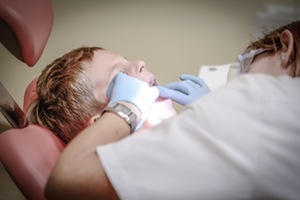How to Buy or Sell A Dental Practice
 In considering the sale of a dental practice, the first decision that both parties need to agree on is whether the sale will consist of purchasing the entire professional service corporation or merely the assets of that corporation. While a buyer whose aim is only to purchase the assets of an existing dental practice, such as patient lists, equipment, supplies, and intellectual property, needs to enter into either a purchase and sale agreement or an asset transfer agreement, a buyer looking to purchase an entire business entity will need to enter into a stock purchase agreement. Whether the sale of a dental practice is structured as an asset sale or the sale of a professional services corporation, both sides will need to work together to compile a list of all of the practice’s assets that will be included in and excluded from the sale. This asset list will be included in the sale agreement signed by both parties.
In considering the sale of a dental practice, the first decision that both parties need to agree on is whether the sale will consist of purchasing the entire professional service corporation or merely the assets of that corporation. While a buyer whose aim is only to purchase the assets of an existing dental practice, such as patient lists, equipment, supplies, and intellectual property, needs to enter into either a purchase and sale agreement or an asset transfer agreement, a buyer looking to purchase an entire business entity will need to enter into a stock purchase agreement. Whether the sale of a dental practice is structured as an asset sale or the sale of a professional services corporation, both sides will need to work together to compile a list of all of the practice’s assets that will be included in and excluded from the sale. This asset list will be included in the sale agreement signed by both parties.
Because a dental practice’s location is often critical to its success in maintaining the practice’s current patient list, one of the primary concerns that typically arises early on in the sale of any dental practice is the buyer’s continued use of the practice’s location at the time of the sale. Regardless of how the sale will be structured, if the buyer plans to continue practicing dentistry at the existing location, the sale may need to be contingent upon the buyer being able to maintain use of the current location. If the current location is not owned by the practice or its owner and is instead under lease, both the buyer and seller should communicate with the landlord, who can either choose to assign the seller’s current lease to the buyer or terminate the existing lease with the seller and enter into a new long-term lease with the buyer. However, if the selling dentist already owns the office space used by the practice, the seller and buyer can either include the office space as an asset to be acquired in the sale or sign a lease agreement wherein the seller agrees to lease the current space to the buyer for a negotiated amount of time.
Once the type of sale agreement and the assets involved in the sale have been agreed upon, it is necessary for both parties to negotiate a purchase price, which typically occurs via a lump sum payout at the closing of the sale, payments over time, or some combination thereof. In the context of the sale of a professional dental practice, one common approach to a sale based upon payments over time is for the sale to be structured as a loan. In this scenario, the seller issues a loan, with a negotiated interest rate and term, to the buyer, with the loan secured by the practice itself so that if the buyer defaults on any payments during the term of the loan, the seller can simply take back ownership of the practice. Structuring an agreement this way can prove beneficial for both the buyer and seller as it protects the seller against a buyer default on payments and allows the buyer to defer a portion of the purchase price.
Contact Your Contract Lawyer
To learn more about how Your Contract Lawyer might be able to assist you in buying or selling a dental practice or another type of professional service corporation, please contact us via phone or the contact form on this page. If you get a chance, head over to our Yelp page to read reviews of our past work.
